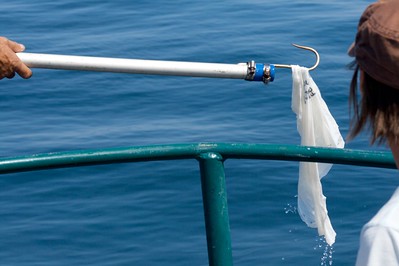 |
| Plastic large, small and microplastics at the Pacific gyre Photo: Hagerty Ryan, USFWS on Pixnio |
I wrote earlier about the ban on single-use plastic bags and most polystyrene foam containers that went into effect today. It is an important step in fighting plastic pollution. But plastic pollution comes from a lot more than those bags and takeout containers.
It is estimated New Jersey uses about 4.4 billion single-use plastic bags every year. A small fraction of them (less than 5 percent) are recycled, so they end up in landfills, trash incinerators, or just as litter in streets, wooded areas, along roads, and waterways.
The benefits of fewer plastic bags in the environment are greater than the inconvenience of bringing my having to bring my own bags from home. In my house, we have been re-using the small plastic bags from stores in our small trash cans in the bathrooms and bedrooms. But they do end up in our trash and eventually in a landfill or incinerator.
These bags and most plastic products are made from petroleum byproducts. Burned in an incinerator, they create air pollution. Left out and exposed to sunlight and the elements they eventually break down into smaller and smaller bits. Those bits are known as “microplastics” and these tiny particles become part of the food chain, particularly in oceans. They also find their way into and contaminate our drinking water (even some bottled waters) and food.
 |
If you walked the coastline of NJ from the rivers in the northeast and west to our famous Jersey Shore, you have come across plastic pollution. If you have been out on coastal waters, you probably have seen it too. As unattractive as it is, the dangers are not aesthetic. They hurt wildlife and eventually people.
The new ban won't even eliminate all plastic bags. Grocery stores can still use bags to hold uncooked meat, fish, poultry, loose items like fruits, vegetables, nuts, coffee, grains, and foods sliced or prepared to order. In other stores, exceptions include bags for holding newspapers, prescription drugs, and dry cleaning bags.
The ban is a good start but it is not the end.
 |
| Trash - mostly plastics - often end up washed up on coastlines Science Photo Library, NTB via ndla.no |
LINKS
NJDEP “Get Past Plastic” nj.gov/dep/get-past-plastic/#single_use_bags
New Jersey Clean Communities “Bag Up NJ” website at bagupnj.com